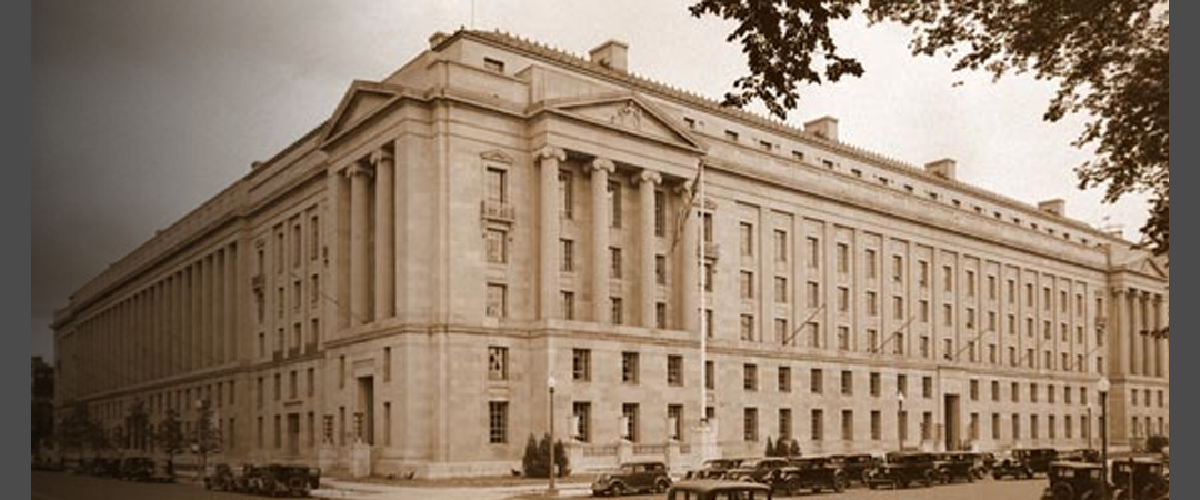John Andrew Jackson Creswell, Maryland Abolitionist from Cecil County

John Andrew Jackson Cresswell. Image: Dickinson University, House Divided project
In a previous edition of Common Sense for the Eastern Shore, I reported that John A.J. Creswell of Elkton in Cecil County had appeared on a list of Maryland politicians who were enslavers compiled by the Washington Post. My research indicated that, to the contrary, he was an active opponent of slavery as well as a benefactor of African American freedmen, and that suggestions he was an enslaver were false. Because I owe an apology to the memory of this distinguished gentleman, this article highlights his career in politics.
The first thing to be clarified is his name, which can also be found as John Angel James Creswell. According to an article in Wikipedia, that mistake occurred in the late 19th Century when his papers were processed by the Library of Congress.
John Andrew Jackson Creswell was a man of contradictions. Politically, he was a Whig until the Whigs self-destructed, at which point he joined the Democratic Party, for which his namesake, Andrew Jackson, was a hero. Later, like the Radical Republicans in Congress, his was a strong voice for the Union and for the abolition of slavery.
Creswell was born on Nov. 18, 1828, in Port Deposit, Md. Educated in a local academy in Elkton, Creswell graduated from Dickenson College in 1848 and passed the bar two years later. At the outbreak of the Civil War, he supported Abraham Lincoln.
In 1861, Creswell was elected to the Maryland House of Delegates and served there until 1862. While in the House, he worked to keep Maryland from joining the Confederacy. He was elected to the U.S. House of Representatives in 1862, where he served until 1865. He was then elected to the U.S. Senate to fill the vacancy after the death of Thomas H. Hicks.
He served in the Senate until 1867. At the Republican National Convention in 1868, Creswell was considered as a nominee for president or vice–president. He supported the eventual nominee, Ulysses S. Grant, for president and in 1869, Grant appointed him U.S. Postmaster General. In that position, Creswell introduced the penny postcard and worked to revise postal treaties. He also asked for the abolition of the franking privilege, which allowed members of Congress to send mail at the government’s expense. This resulted in an unsuccessful attempt to remove him from office. On Jan. 28, 1873, Grant signed the law that abolished the congressional franking privilege.
John Creswell can also be credited with modernizing the nation’s postal system to adapt to increasing demands. He codified a classification system of offenses against postal laws. Additionally, he reduced postal costs and ensured that the postal system ran more efficiently. He created a fair domestic pricing system and reduced international postal rates.

African American rural mail carrier. Photo: U.S.P.S. collection
Perhaps the biggest change he brought to the postal service was the appointment of more African Americans. Prior to 1865, African Americans were banned from working in the postal department. Creswell began to appoint Black postmasters across the country, including in the South. On Nov. 15, 1872, he appointed Anna M. Dumas as the first African American woman postmaster in Covington, La. He also ended the policy of hiring only Whites as mail carriers, appointing James Christian of Richmond, Va., as the first African American mail carrier in 1869. Creswell appointed Isaac Myers of Baltimore as the first African American postal inspector. In 1874, President Grant appointed Creswell as the Alabama claims commissioner, a position that he filled until 1876, after which he retired from politics and returned to private law practice and served as president of two banks.
Creswell died from influenza and pneumonia at his home outside Elkton in 1891, and was interred in Elkton Presbyterian Cemetery. There is a large granite monument to him in the Creswell family plot.
John Andrew Jackson Creswell should be considered among Maryland’s and the Eastern Shore’s most distinguished politicians. He stood up for his ideals with courage and dedication and made a real difference while serving in elected and appointed offices. Sadly, his reputation as an abolitionist has been mostly forgotten. He left no diary, autobiography, or memoir, except for a brief biographical sketch he wrote in November 1863, probably for the Congressional Journal.
Sources:
Wikipedia, John Creswell
https://en.wikipedia.org/wiki/John_Creswell
A native of Wicomico County, George Shivers holds a doctorate from the University of Maryland and taught in the Foreign Language Dept. of Washington College for 38 years before retiring in 2007. He is also very interested in the history and culture of the Eastern Shore, African American history in particular.
Common Sense for the Eastern Shore







